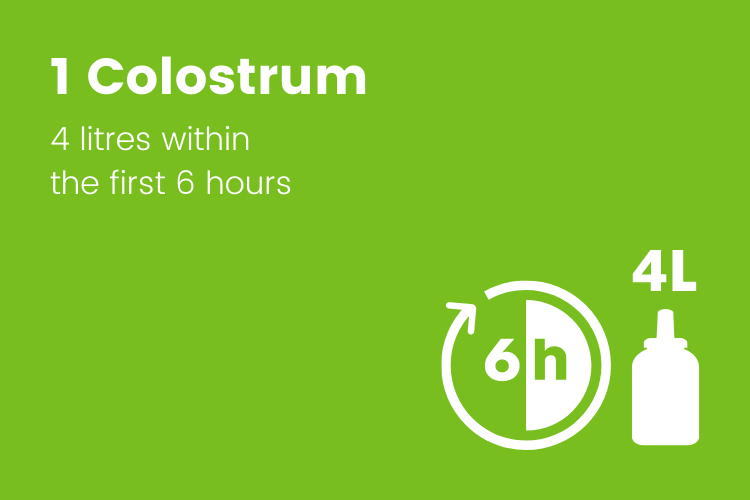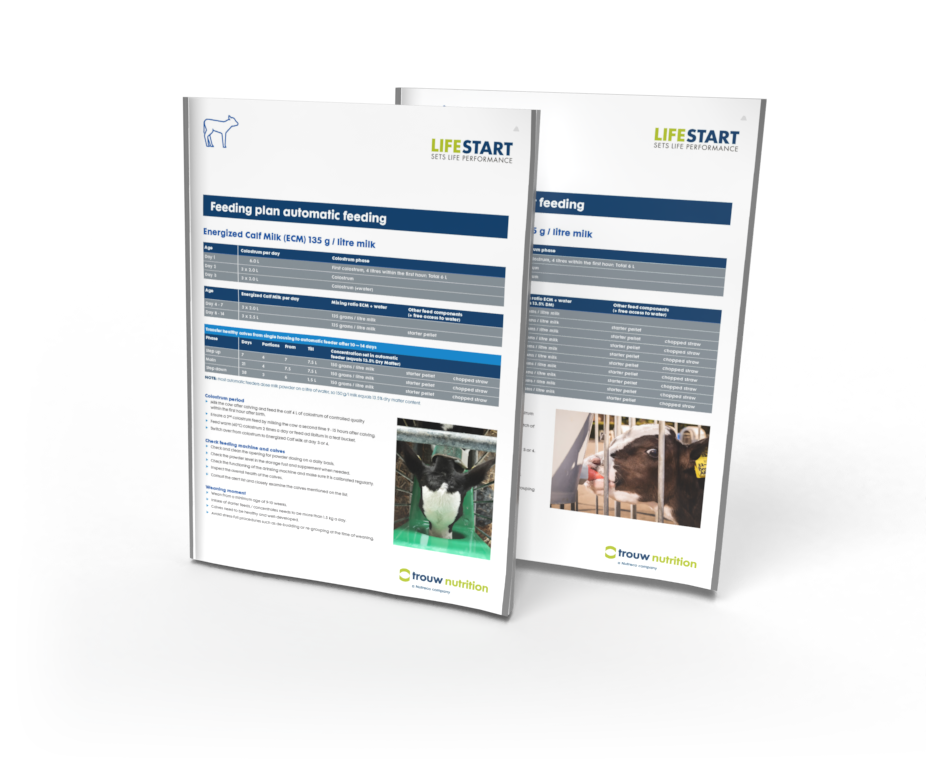Elevated planes of pre-weaning nutrition increase ADG, preparing calves for a more productive life

The key scientific principle behind the LifeStart program and the observed increase in animal production is known as metabolic programming. This is an entirely natural phenomenon that has been proven to exist in all kinds of mammals, including human beings. The effect is best described as an improvement of the whole life health and performance of individuals beyond what would previously have been considered their full potential. The directly observed cause of this effect is optimised growth in the first 70 days of life, the preweaning phase. As a result, LifeStart sets life performance.
LifeStart feeding schedules boost early calf growth. Although the precise methods vary, a number of recent studies have demonstrated the benefits of accelerated early calf growth by intensive liquid feeding during the first eight weeks of life.

